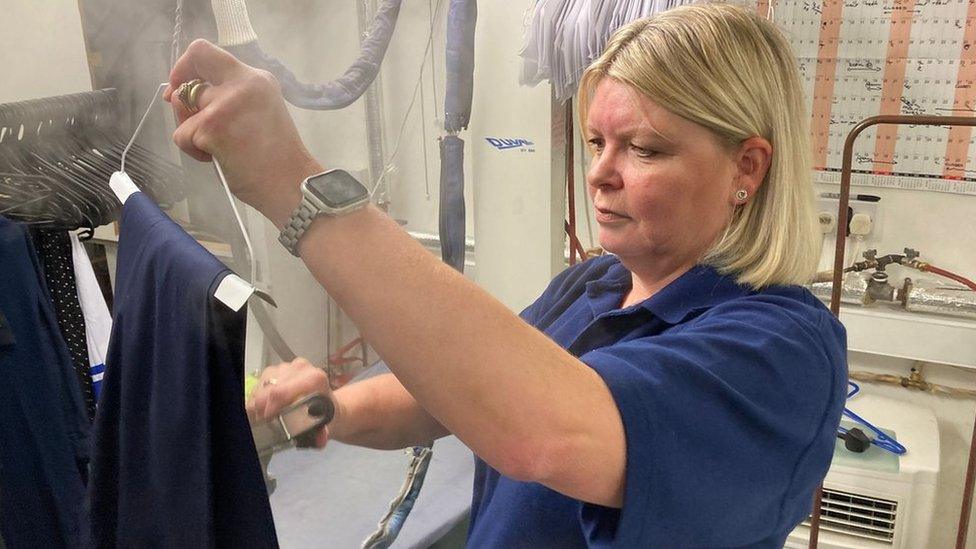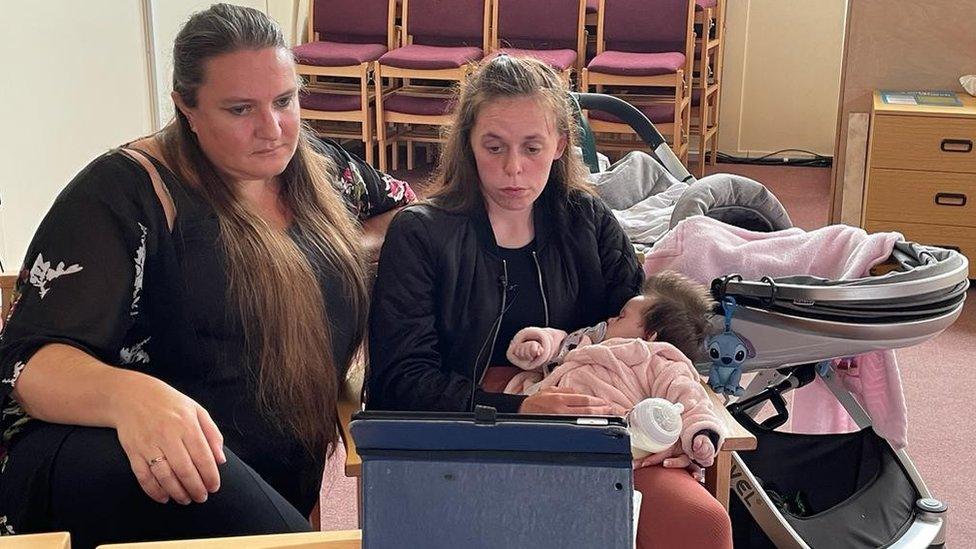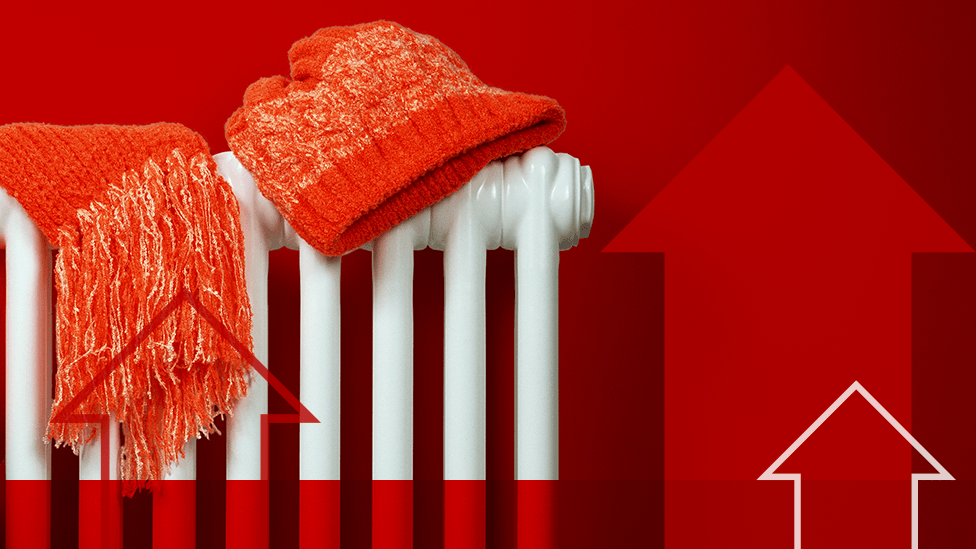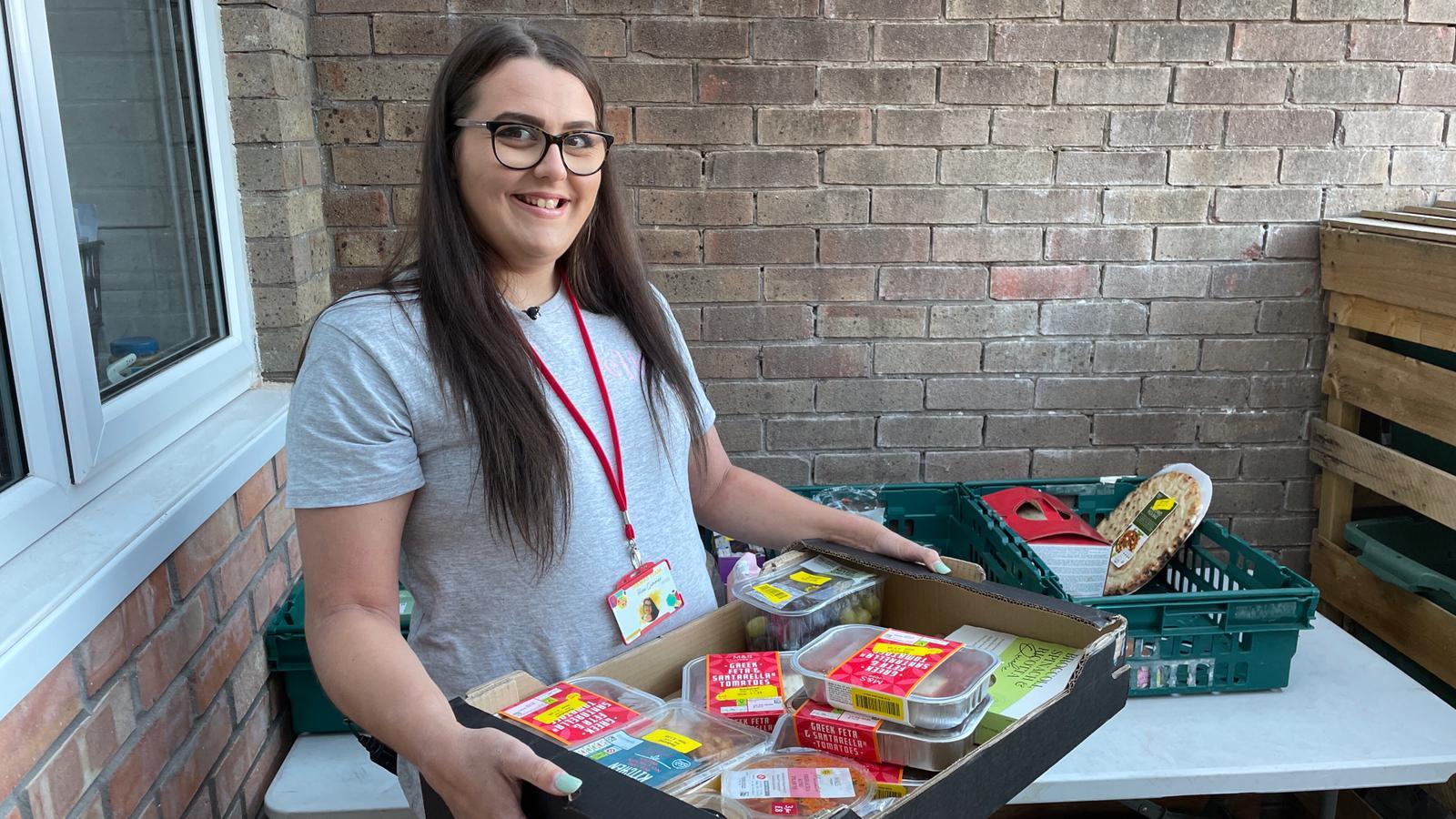Small businesses cut services to survive energy hike
- Published

Glenys Greenaway's dry cleaning business faces energy bills of £29k a year even after government discounts are applied
Small business owners say they are having to make major cutbacks to survive the energy crisis.
Government help will cut energy bills for businesses by around half their expected level this winter but owners say they will still struggle.
Somerset health foods cafe Sow and Arrow are turning off their coffee machine at 2pm each day to save money.
While dry cleaners Hard Pressed for Time, in Gloucestershire, are only running their dryers three days a week.
Owner Glenys Greenaway says the energy hike is "crucifying" small businesses.
'Kick in the teeth'
The family dry cleaning service has been trading since 2001, with branches in Cheltenham and Thornbury, but struggled to get through the Covid-19 pandemic.
"To be hit with this [energy price rise] feels like one big kick in the teeth," she said.
She says their current energy contract runs out at the end of the month, then their bills will increase from £10k to £44k annually. Even with the government discount their annual bill will still be £29k.
An increase in home working since the pandemic has also impacted her business, with people wearing tailored clothes less often.
Ms Greenaway says her biggest fear is potentially having to lay-off employees.
'Three times our rent'
Pauline Cox, co-founder of Sow and Arrow cafe in Clevedon, explained why they had reduced the hours they operate their coffee machine.
"It's like having a kettle that's constantly running," she said.
Serving low carbohydrate treats, the cafe was founded a year before the pandemic started.
Ms Cox said the implications of the energy crisis for businesses has been "enormous".
"Our energy costs are almost three times our rent at the moment," she said.
The cafe's line of baked products has also had to be cut back as they found the most expensive appliances to run - along with their coffee machine - were the ovens and refrigerators.
"We are not expecting to grow in the next year, we are just trying to survive the next 12 months," Ms Cox said.

Follow BBC West on Facebook, external, Twitter, external and Instagram, external. Send your story ideas to: bristol@bbc.co.uk , external
Related topics
- Published23 September 2022

- Published22 September 2022

- Published19 June 2022
